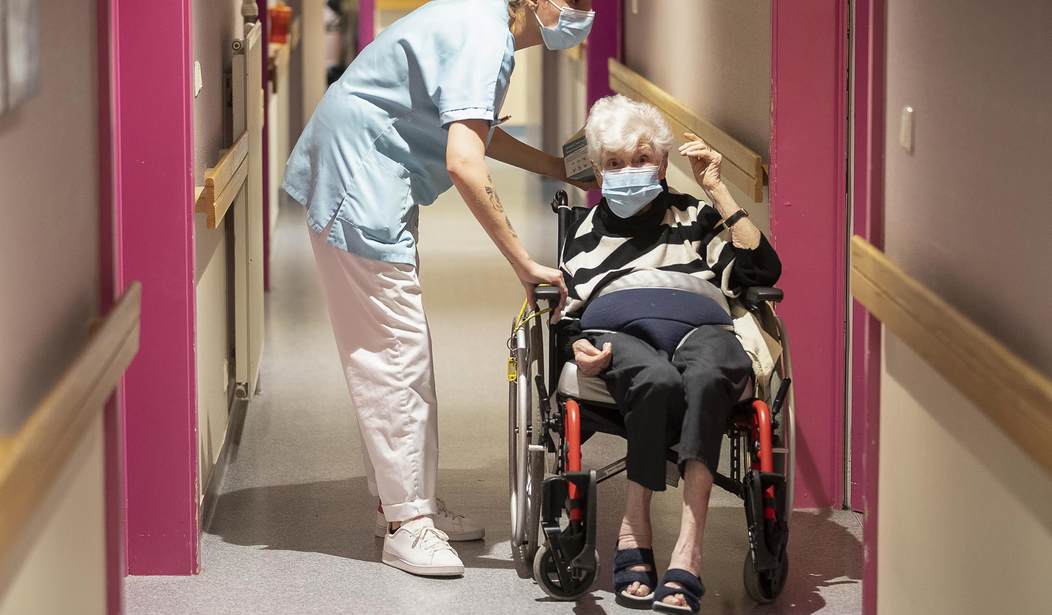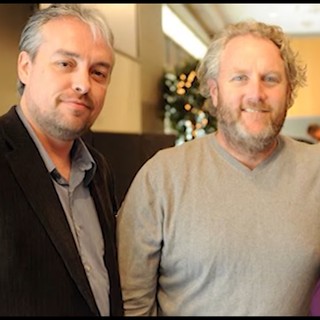This is one of those articles that is personal to the author who wrote it, so it may not be everyone's cup of tea, which is understandable.
However, one of the shocking things I have learned in my six-plus years as a caregiver for a dementia patient is this.
The number of people who are joining or who are already doing what I did in my former full-time profession is growing, and soon it will be impossible for anyone who reads this to not know of someone on a first-hand basis who is caring for a loved one in the United States of America.
One week ago today, on Sunday, August 20th at approximately 12:30 a.m., my Mom passed away from complications of dementia. At some point in the future, I will write on these pages here at RedState and also talk about this on my radio show, Duke Over America, about what an absolute blessing she was to my family. Today cannot be that day, though, because it is nearly impossible to recall 53 years of memories in less than 7 days and do it without breaking down, thus ruining my laptop.
Yet on this occasion of her passing one week ago, I felt the need to take a moment, which I will do many times in the future, to talk about the enormous responsibility and task that so many people in this country take up to care for a loved one during their greatest time of need.
Now one of the underlying factors that unites all of us writing on these pages is that we are pro-life.
Of course, most people would correctly jump to the assumption that the pro-life movement mostly entails the struggles and the arguments that revolve around abortion. Yet to me, that phrase has expanded to taking care of those also at the end of their life and not discarding them because they are no longer a useful or productive member of society.
As I joked with Mom many years ago when this journey started, she carried me for 9 months the least I could do was give her 9 years of caring for her. So at least for me, being pro-life has expanded to truly defending life from cradle to crypt in the most dignified and humane way possible.
A report from AARP at the beginning of 2020 had these alarming numbers:
Today, more than one in five Americans (21.3 percent) are caregivers, having provided care to an adult or child with special needs at some time in the past 12 months. This totals an estimated 53.0 million adults in the United States, up from the estimated 43.5 million caregivers in 2015.
The report highlights the nearly 48 million caregivers caring for someone over the age of 18. Key findings include:
- Nearly one in five (19%) are providing unpaid care to an adult with health or functional needs.
- More Americans (24%) are caring for more than one person up from 18% in 2015.
- More family caregivers (26%) have difficulty coordinating care up from 19% in 2015.
- More Americans (26%) are caring for someone with Alzheimer’s disease or dementia up from 22% in 2015.
- More Americans (23%) say caregiving has made their own health worse up from 17% in 2015.
- Family caregiving spans across all generations, including Boomers, Gen-X, Gen-Z, Millennials, and Silent.
- 61% of family caregivers are also working.
As I was reading some of these stats from AARP and also some others from the Alzheimer's Association, I was stunned at how many of those bullet points I was able to check off, and it made me recall how it all started.
You recognize that there is potentially a problem, or you're given a heads up by a medical professional, you read a little bit about it, you talk to people who have had some experiences with it, and you figure out what will be the best course of action for you and the loved one. However, the dirty little secret is that this quickly can morph and overtake you and everything in your life until one day, you do not recognize the person you are caring for or yourself.
I truly feel like I'm one of the lucky ones though, because I've been able to write at RedState and also do a radio show from home. I was not able to go full contact guns blazing like some, but this was allowing me to focus a small amount of time on the world around me outside of the bubble of caregiving. This allowed me to not go crazy caring for my parental unit while watching the craziness in the world continue while simultaneously having protection on both ends of the spectrum I was in.
Unfortunately, I have read way too many testimonials on social media sites of people who have been totally engulfed by the situation of caregiving for someone, and they feel as though they have nowhere to turn to.
Now as I ease my way back into the real world and take my first step out of my 24/7/365 caregiving duties, I feel both guilty and happy.
Caregiver guilt is a real thing.
After you initially get over the shock of the mental car crash of that moment of not having the person who has been the focus of your attention and having to make sure that they are okay at all times of the day and night, something else happens. You start to traverse the dangerous minefield of what you could have done better or something that you may have missed that led to their passing. That is the part that can weigh you down and make you feel guilty about no longer having this responsibility, and it is all-encompassing even though if you are a CHRISTian ( as Mom was and I am), you know that she has moved on to a place where there is no more confusion or suffering.
Of course, the happy side of it is that I can now go and do things that I had long ago forgotten that I would normally do and used to do on a regular basis. Those that I have talked to who have been through this phase have told me that the guilt is always hiding around a corner, waiting to reappear or pop up when a memory of a loved one comes flooding back, no matter how much you are enjoying yourself at any moment.
So now that one season of my life has ended and I begin a totally different phase, as Pastor David LaDuke kindly reminded me earlier last week, I make a pledge to honor my mom and to hopefully help those who are continuing their journey to assist others.
I may currently be a former caregiver to the person who gave birth to me, but I'm now officially a caregiver who has it in his DNA. The 53 million Americans that the AARP claims are caregivers and (quite frankly, I think that number is probably higher) I'm still one of you.
I have not, as of yet, fully figured out how I can help or what I can do, but I'm going to figure something out. Your numbers are growing, and the need is so great that I can't just dust my hands off and walk away now that my loved one is gone. You folks are a throwback to the days when most everything was taken care of in-house, and it was a part of what made America, America.
While I sort through my mental debris and search for a new purpose in this season of my life, I highly suggest if you or someone you know is in the position of caregiving, you go to the Alzheimer's Association or call their 24/7 HELPLINE 800.272.3900. The number is a lifeline for those who are caregivers, and it is an amazing resource on so many things.
If you are a caregiver and would like to reach out you can check out my BIO page here at RedState and let me know what you think about any of this.














Join the conversation as a VIP Member